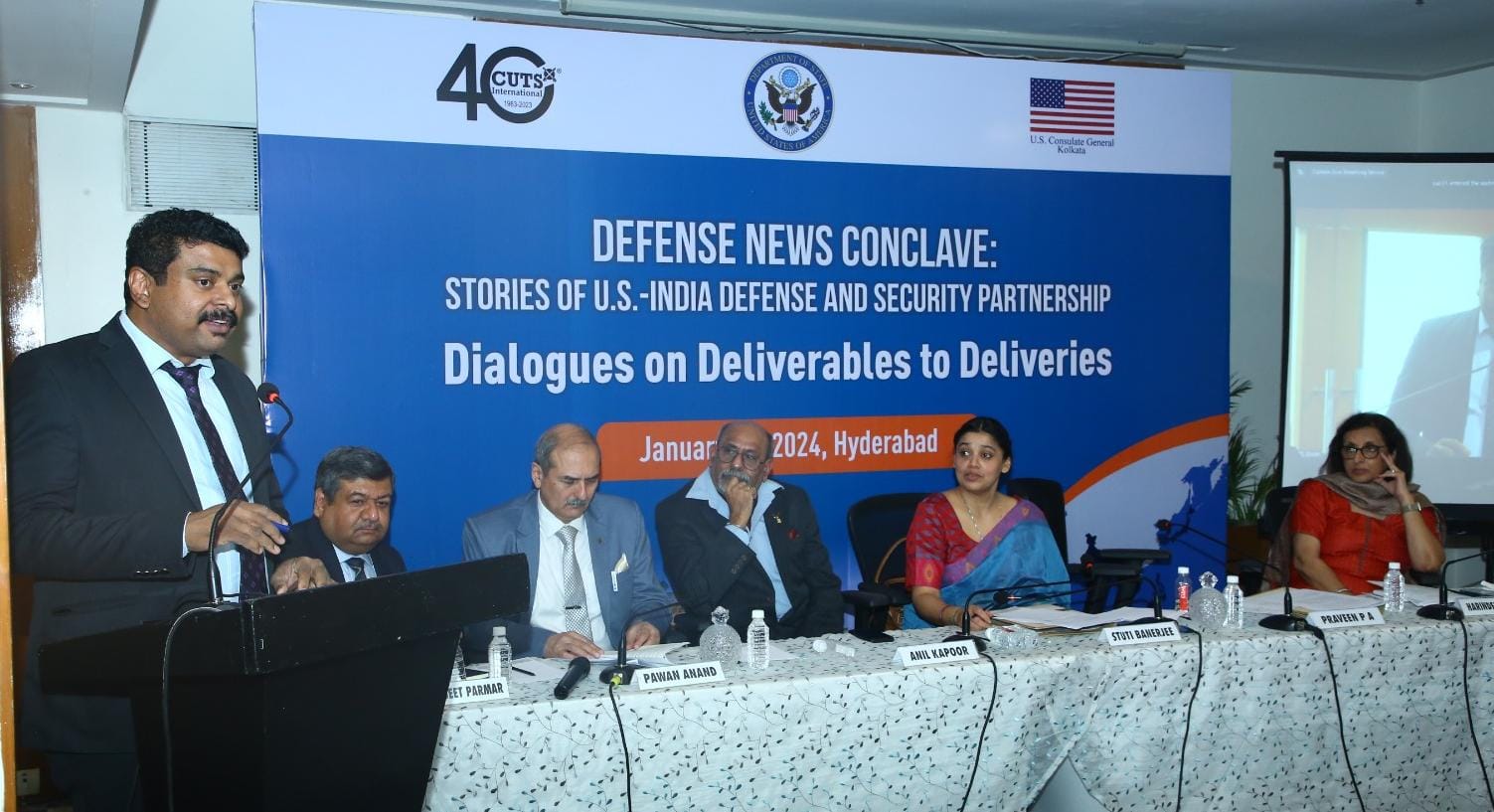New Delhi: In the context of evolving US-China relations, experts emphasize the pivotal role of big data tailored for artificial intelligence (AI) and the establishment of a robust regulatory framework in deepening Indo-US AI relations. This was discussed during a workshop on “Defense News Conclave: Stories of U.S.-India Defense and Security Partnership,” jointly organized by CUTS International, US Consulate Hyderabad, and US Consulate Kolkata.
Defense experts highlighted the current AI landscape in India and underscored the imperative for collaborative efforts in this sector. Lt. Gen. (Retd) Anil Kapoor, Board Member of Technology Innovation Hub Governing Body, emphasized, “When considering AI from a defense perspective, there must be clarity on trust in data, volume of data, and the typical characteristics of big data. India is still consolidating big data. Despite having a substantial digital public infrastructure, more data needs to be generated for AI in defense.”
He added, “The data we currently possess is oriented towards business and augmented intelligence. For defense, joint efforts between India and the USA are essential to create a singular source of truth.” The ongoing ‘United States India Artificial Intelligence (USIAI) initiative serves as a platform for bilateral cooperation on AI and R&D between the two nations.
Major General (Retd) Pawan Anand, Head of AtmaNirbhar Bharat Initiative at the United Service Institution of India, underscored the necessity of using data conditioned specifically for AI. “Synthetic data fed to AI is likely to yield inaccurate results. Therefore, it is crucial to use data conditioned for AI, an area where India currently lacks and requires support from the US. While substantial dialogues on AI are already underway, the focus should now shift to establishing regulatory framework mechanisms for AI,” he remarked.
Defense stands as a linchpin in Indo-US relations, with bilateral defense trade reaching USD 25 billion, according to U.S. Consul General Jennifer Larson.





